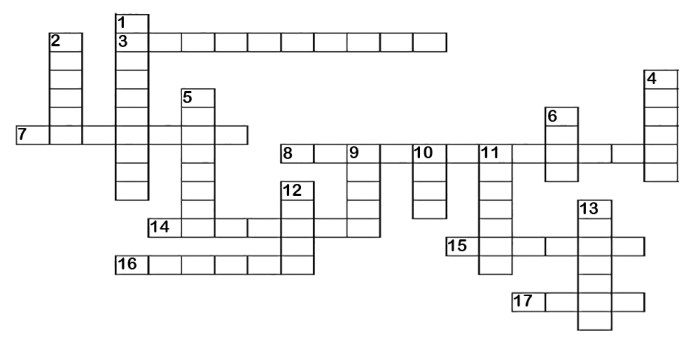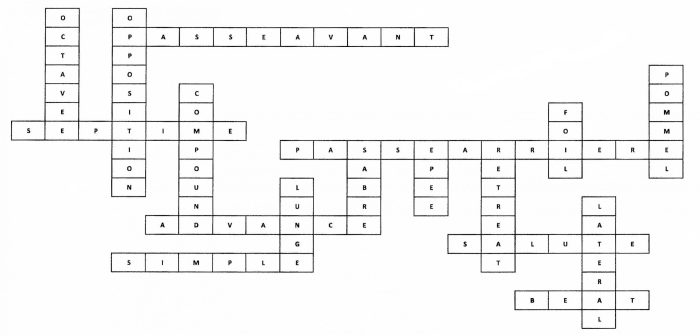Get off the fence crossword – Embarking on an exploration of the enigmatic idiom “get off the fence,” this article delves into its historical roots, metaphorical meanings, and cultural variations. Join us as we unravel the complexities of this phrase that has shaped countless literary and everyday conversations.
Throughout history, “get off the fence” has served as a poignant expression, urging individuals to shed indecision and embrace clarity of thought and action.
Historical Background

The idiom “get off the fence” originated in the 16th century, when it was used to describe the act of dismounting from a fence or other barrier. Over time, the idiom has come to be used more figuratively, to refer to the act of making a decision or taking a stand on an issue.
Examples of Usage
The idiom “get off the fence” has been used throughout history to describe a wide range of situations. For example, in the 18th century, the idiom was used to describe the act of taking sides in a political debate. In the 19th century, the idiom was used to describe the act of making a decision about whether or not to go to war.
In the 20th century, the idiom was used to describe the act of making a decision about whether or not to support a particular social or political movement.
When you’re stuck on a get off the fence crossword clue, sometimes it helps to think about related words. For example, if you’re looking for a word with the root cred, you might want to check out this article: word with the root cred . It might just give you the inspiration you need to solve that pesky clue.
Metaphorical Meanings

The idiom “get off the fence” is a vivid metaphor that encapsulates the act of making a decision after a period of indecision or procrastination.
When someone is “on the fence,” they are figuratively perched on a barrier, unable to commit to either side. This state of indecision can be caused by a variety of factors, such as fear of making the wrong choice, a desire to avoid conflict, or simply a lack of conviction.
Indecision
The idiom “get off the fence” is often used to describe the process of overcoming indecision. When someone finally makes a decision, they are said to have “gotten off the fence.” This act of commitment can be a significant step, as it requires the individual to confront their fears and uncertainties and to take ownership of their choice.
Procrastination
The idiom “get off the fence” can also be used to describe the act of overcoming procrastination. When someone procrastinates, they delay making a decision or taking action. This can be due to a variety of factors, such as fear of failure, a desire to avoid responsibility, or simply a lack of motivation.
Neutrality
Finally, the idiom “get off the fence” can be used to describe the act of overcoming neutrality. When someone is neutral, they do not take a side in a debate or conflict. This can be due to a variety of factors, such as a desire to avoid conflict, a lack of knowledge about the issue, or a belief that both sides have valid points.
Cultural Variations

The idiom “get off the fence” is used in various cultures around the world, but its meaning and usage may differ slightly depending on the language and cultural context.
In English-speaking cultures, the idiom typically refers to the act of making a decision or taking a stand on an issue after avoiding commitment for a prolonged period. It implies a sense of urgency or the need to overcome indecision.
Variations in Meaning, Get off the fence crossword
- In some cultures, such as Japan, the idiom may carry a more negative connotation, implying a lack of commitment or indecisiveness that is seen as undesirable.
- In other cultures, like Spanish-speaking countries, the idiom is often used in a more positive sense, encouraging individuals to take action and make decisions.
- In some African cultures, the idiom may be used to emphasize the importance of seeking consensus and avoiding rash decisions.
Variations in Usage
- In some languages, such as German, there is no direct equivalent to the idiom “get off the fence,” so it may be expressed using different phrases or metaphors.
- In other languages, like French, the idiom may be used more frequently in formal settings or when discussing important matters.
- In some cultures, the idiom may be used more commonly in certain contexts, such as politics or business, while in others it may be used more broadly in everyday conversations.
Usage in Literature and Media: Get Off The Fence Crossword

The idiom “get off the fence” has been used extensively in literature, film, and other media to convey the idea of making a decision or taking a stand.
In literature, the idiom is often used to develop characters and explore themes related to indecision, courage, and the consequences of inaction. For example, in Harper Lee’s novel To Kill a Mockingbird, the character of Atticus Finch famously tells his daughter Scout, “You never really understand a person until you consider things from his point of view…
Until you climb into his skin and walk around in it.” This quote encourages readers to “get off the fence” and try to understand the perspectives of others, even if they disagree with them.
Film and Television
In film and television, the idiom “get off the fence” is often used to create dramatic tension and suspense. For example, in the film The Shawshank Redemption, the character of Andy Dufresne spends years planning his escape from prison. The film builds suspense by showing Andy’s struggle to “get off the fence” and make the difficult decision to escape.
Music
The idiom “get off the fence” has also been used in music to convey themes of indecision and the need to take action. For example, in the song “Get Off the Fence” by the band The Killers, the lyrics encourage listeners to “get off the fence” and make a decision about their lives.
Modern Applications

In the fast-paced, ever-evolving landscape of contemporary society, the idiom “get off the fence” remains as relevant as ever. It serves as a poignant reminder of the importance of taking a stand and embracing decisive action in the face of uncertainty and conflicting perspectives.
In the realm of politics, “getting off the fence” often entails breaking away from the safety of neutrality and committing to a particular ideology or party. Politicians who remain on the fence may face criticism for lacking conviction or for failing to represent the interests of their constituents.
Social Contexts
In social contexts, “getting off the fence” can manifest in various forms. It may involve expressing one’s opinions openly and honestly, even when they differ from the majority. It can also mean taking an active role in addressing social issues, such as volunteering for a cause or advocating for social justice.
Personal Contexts
On a personal level, “getting off the fence” often requires confronting inner doubts and making difficult decisions. It may involve choosing between competing options, such as accepting a new job or pursuing further education. It can also entail taking responsibility for one’s actions and facing the consequences, both positive and negative.
In all these contexts, “getting off the fence” symbolizes courage, conviction, and a willingness to embrace the unknown. It is a call to action that encourages individuals to take ownership of their beliefs, values, and decisions.
Questions Often Asked
What is the origin of the idiom “get off the fence”?
The idiom originated in the 19th century, drawing inspiration from the physical act of dismounting a fence, signifying a shift from inaction to action.
How is the idiom used in different cultures?
While the core meaning remains consistent, the idiom may exhibit subtle variations in usage and interpretation across different cultures.
What are some examples of the idiom’s use in literature?
The idiom has been employed by renowned authors to depict characters grappling with indecision, such as in Shakespeare’s “Hamlet” and Jane Austen’s “Pride and Prejudice.”
